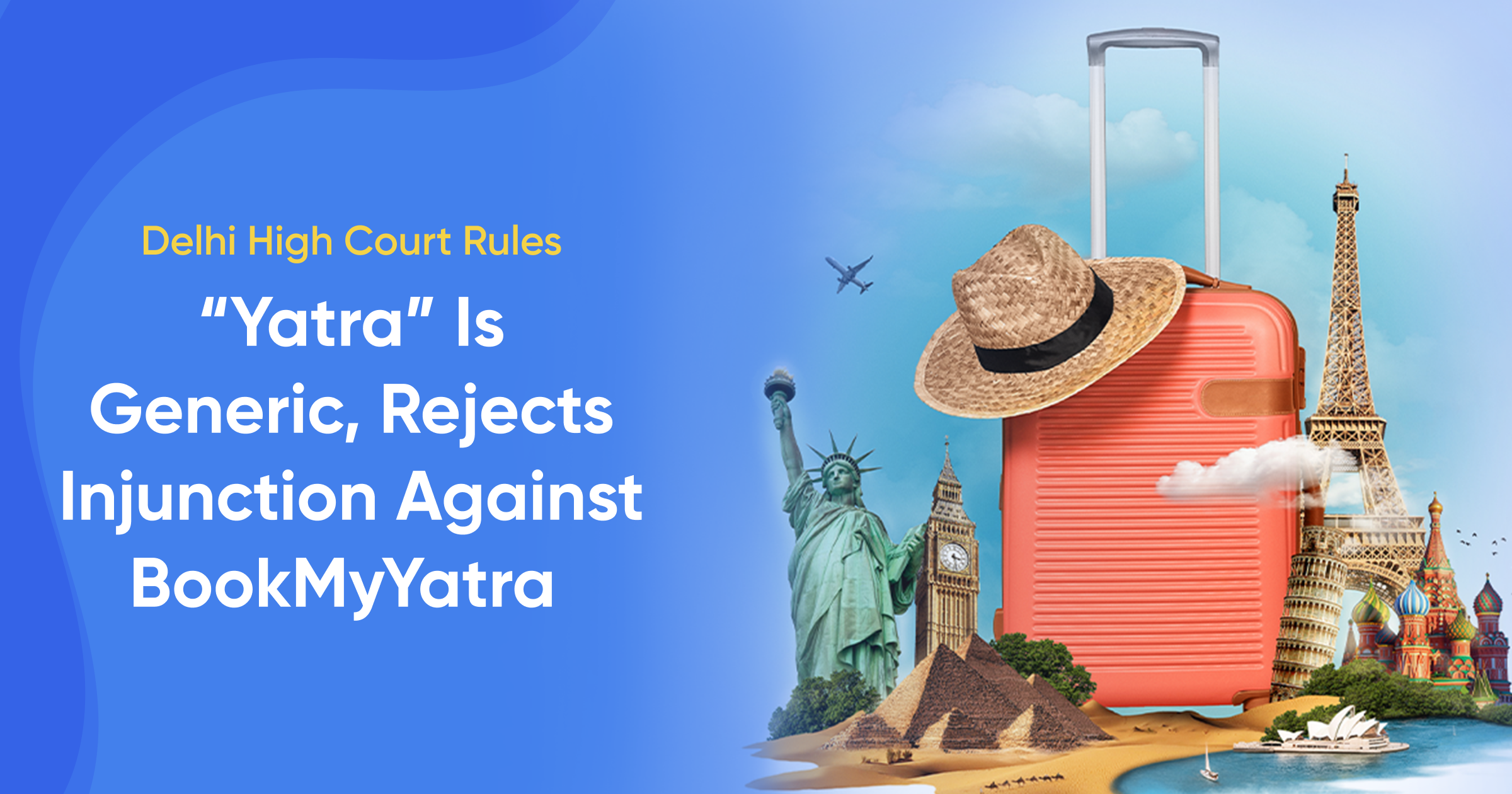The Delhi High Court recently delivered an important ruling for the travel industry. It refused to grant Yatra Online Limited an injunction against Mach Conferences and Events Limited. The dispute revolved around the use of the marks BookMyYatra and BookMyYatra.com.
Justice Tejas Karia dismissed Yatra Online’s application. The court held that the word “Yatra” is generic and cannot be monopolised in relation to travel services. The judgment not only impacts Yatra but also sets an important precedent for the entire travel industry. So, can common words in everyday language really belong to one company?
Why the case reached court
Yatra Online launched operations in 2006. It has grown into one of India’s leading travel booking platforms. The company claims more than 15 million customers and an annual turnover exceeding ₹5,600 crore in FY24.
Yatra argued that the rival’s mark, BookMyYatra, was deceptively similar to its own brand. It claimed Mach Conferences was trying to ride on its goodwill and reputation. Yatra further asserted that through continuous use, the mark “Yatra” had acquired a secondary meaning that made it distinctive.
The rival’s arguments
Mach Conferences strongly opposed Yatra’s claims. It argued that “Yatra” is a common Hindi word for “travel”. According to them, the term had been used by several operators long before Yatra Online started.
Mach also pointed out an important legal fact. Yatra’s trademark registrations included disclaimers that specifically denied exclusive rights over the word “Yatra”. This meant that Yatra Online had already accepted limits on its trademark rights.
The court’s reasoning
The court sided with Mach Conferences. Justice Karia explained that generic or descriptive words cannot serve as trademarks by themselves. Such terms do not indicate origin, nor do they acquire inherent distinctiveness.
The court noted that allowing Yatra Online to monopolise “Yatra” would restrict competition unfairly. It emphasized that disclaimers exist so proprietors cannot extend rights beyond legitimate boundaries.
On the claim of secondary meaning, the court gave a clear view. For secondary meaning to arise, the descriptive sense must fade. In this case, the word “Yatra” continues to be widely used in its ordinary sense by many players. Therefore, Yatra Online failed to prove distinctiveness.
The court also reviewed the overall marks. It found BookMyYatra and BookMyYatra.com visually and phonetically distinguishable due to the prefix “BookMy” and their composition.
Interestingly, the court highlighted that “BookMy” itself is often seen as descriptive. It further clarified that suffixes like “.com” are generic top-level domains and cannot create exclusivity.
Final order
The High Court vacated its earlier interim order from December 2024. That earlier order had temporarily restrained Mach Conferences from using the disputed marks. With no prima facie case established, Yatra Online’s injunction request was dismissed.
Why this decision matters
The ruling highlights a critical principle of trademark law. Businesses cannot monopolise words that are part of the common language. Generic and descriptive terms must remain free for public use.
This case also reinforces the significance of disclaimers in trademark registrations. Accepting a disclaimer limits how far a company can enforce its rights.
For the travel industry, the judgment ensures healthy competition. It sets a reminder that distinctiveness and creativity are essential for building strong, enforceable brands.
If you’re also planning to protect your brand, expert guidance matters. We, Trademarkia’s experienced legal team, help you in choosing, filing, and defending marks that stand up in court. Don’t risk weak protection, partner with Trademarkia to secure a trademark that truly sets your business apart.

